ASTANA – A five-year nurturing of an environmentally friendly lifestyle led Saniya Arinova, 31, to start her own company providing eco-friendly hygiene products to women, caring not only for the environment and minimizing waste but also for female reproductive health. Arinova spoke about her product, challenges, and rewards of creating an eco-business in Kazakhstan in an exclusive interview with The Astana Times.
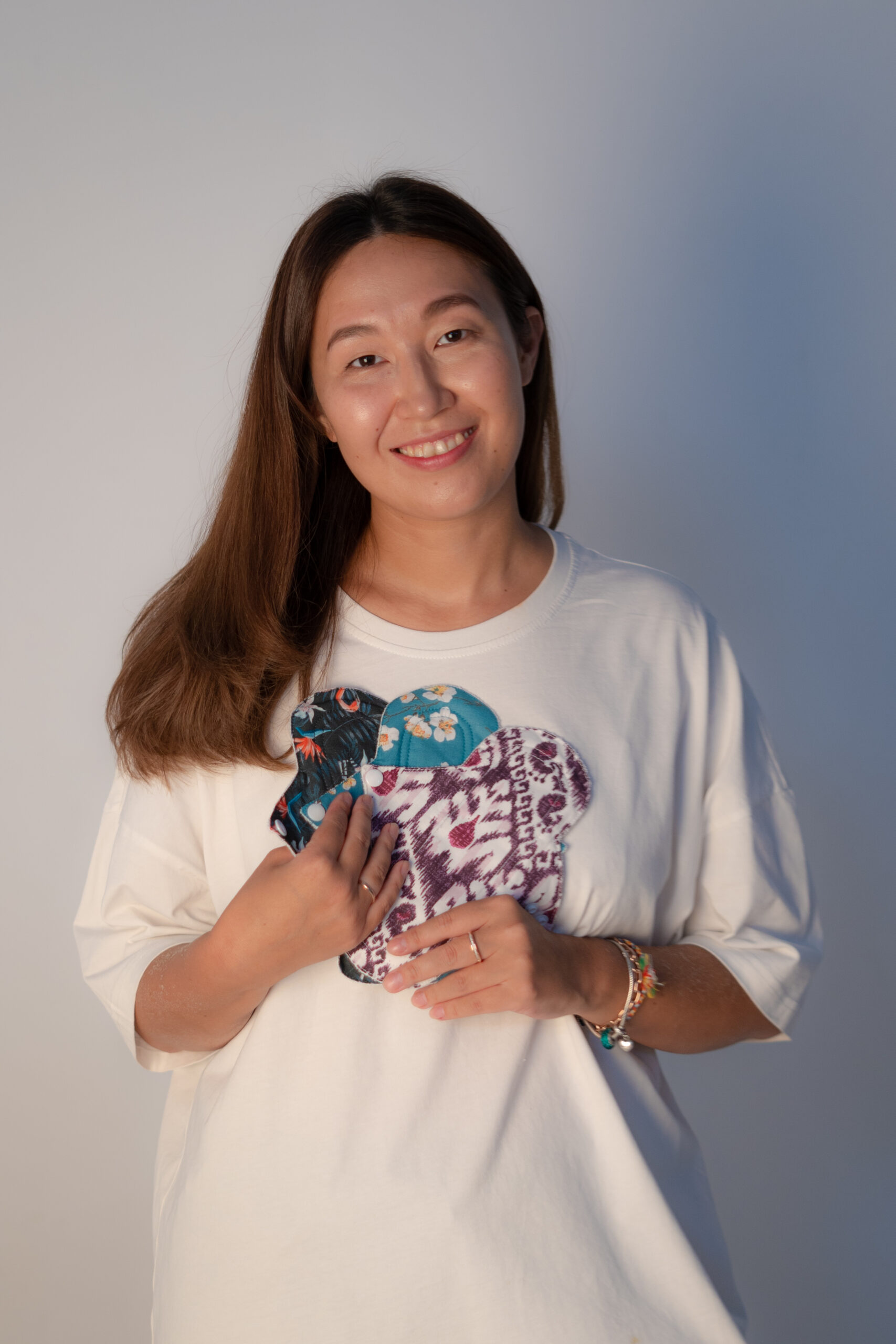
Saniya Arinova, founder of EcoSan. Photo credit: Arinova’s personal archive.
Arinova’s eco-startup is just an obvious extension of her life outlook. She began as an eco volunteer, organizing gatherings to clean the Almaty highlands, forests, and mountains before enjoying the breathtaking views. She is a trained journalist with marketing experience.
“I enjoyed the atmosphere and became acquainted with the Kazakh eco-community. Then I saw that the ecosphere has a business component. I joined the HelloEco team, Kazakhstan’s first zero-waste retailer in Almaty,” she said.
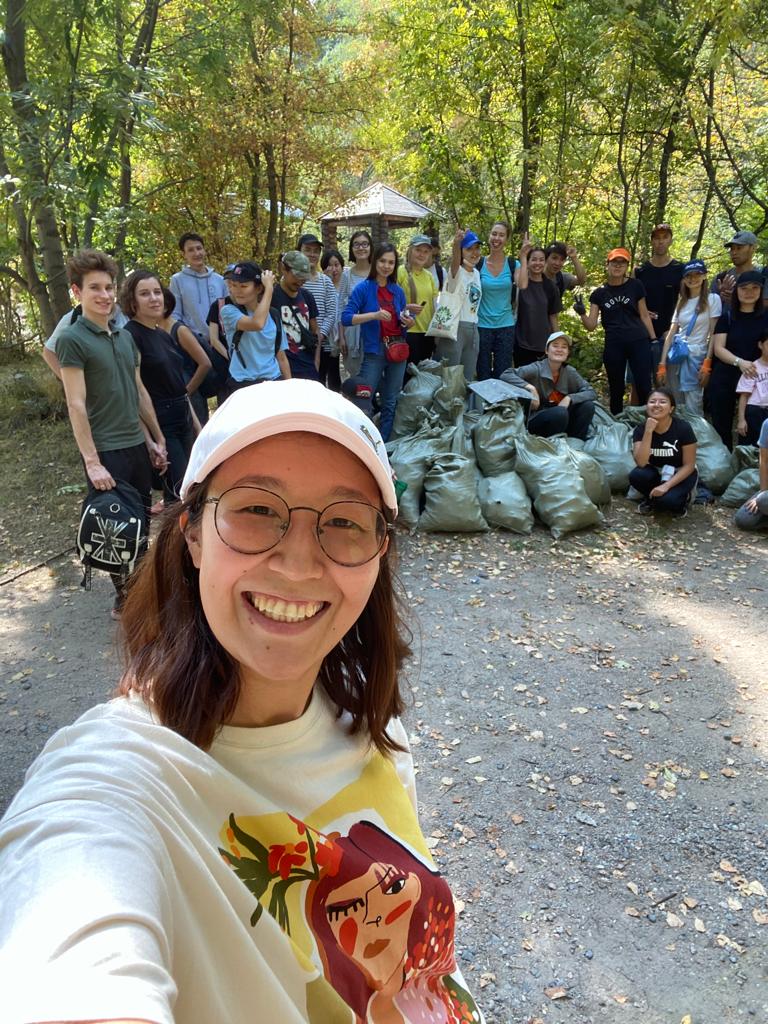
Arinova began as an eco volunteer, organizing gatherings to clean the Almaty highlands. Photo credit: Arinova’s personal archive.
She is now the director of marketing and public relations for HelloEco and aspires to be a full-fledged eco-consultant. She conducts talks about going green in schools, universities, and businesses.
Arinova explains that her idea of launching eco-friendly hygiene products is not new. They are produced in China, the European Union (EU), and neighboring Russia. However, for Kazakh women, this was a relatively new thing.
According to Arinova, in Almaty alone, 1,200 tons of waste are accumulated daily, and there are 9,000 unauthorized dumps in Kazakhstan. The reusable personal care products can reduce the waste level significantly, she said, highlighting they are both eco-friendly and cost-effective.
“A set of eco pads is less expensive than a set of conventional pads. According to estimates I did last year, reusable products are 7.2 times cheaper and have a service life of two-three years. Hygiene product prices have risen by 20 to 40 percent in the previous year. There was a moment when supply was affected by external forces unrelated to our domestic market. I want Kazakhstan to have a domestic manufacturer capable of providing such vital products for women regardless of the time of year or the global political situation. The country also lacks a manufacturer of disposable hygiene products to shoulder this responsibility,” she said.
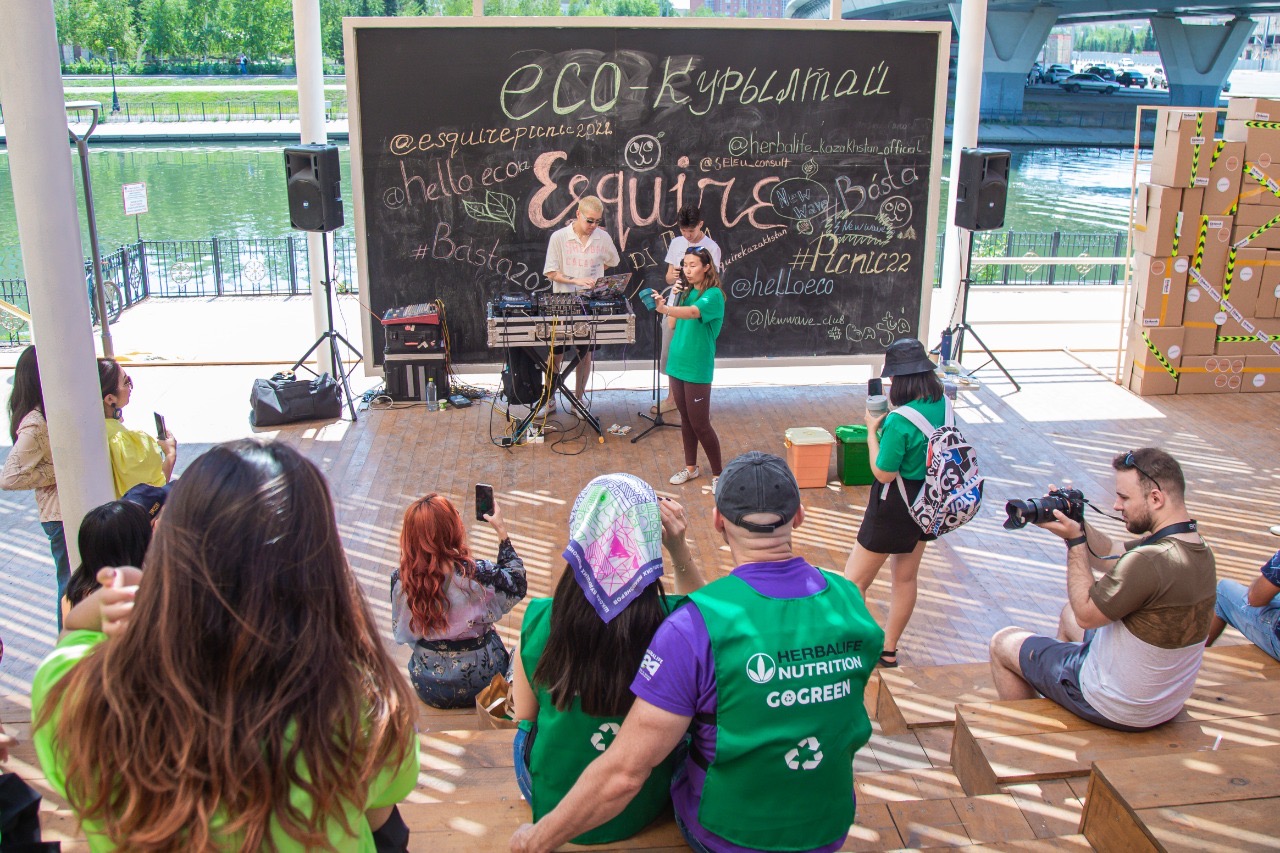
Saniya conducts talks about going green in schools, universities, and businesses. Photo credit: Arinova’s personal archive.
Another key element of Arinova’s motivation is how disposable personal care items impact female reproductive health. According to her, synthetics and plastics used in disposable hygiene items restrict air movement, contributing to the formation of a negative microenvironment.
“First of all, latex, sodium polyacrylate crystals, and synthetic scents are found in disposable pads and one pad has the same amount of plastic as four bags! To bleach disposable pads white, chlorine gas, based on dioxin, a known carcinogen, is used. Dioxin has been linked to cancer, toxic shock syndrome, and even miscarriage,” Arinova said.
Her small business strives for social responsibility. Arinova currently runs her own workshop, which employs single mothers, mothers with many children, and women approaching retirement age. With her team, she intends to increase the production level to mass production soon.
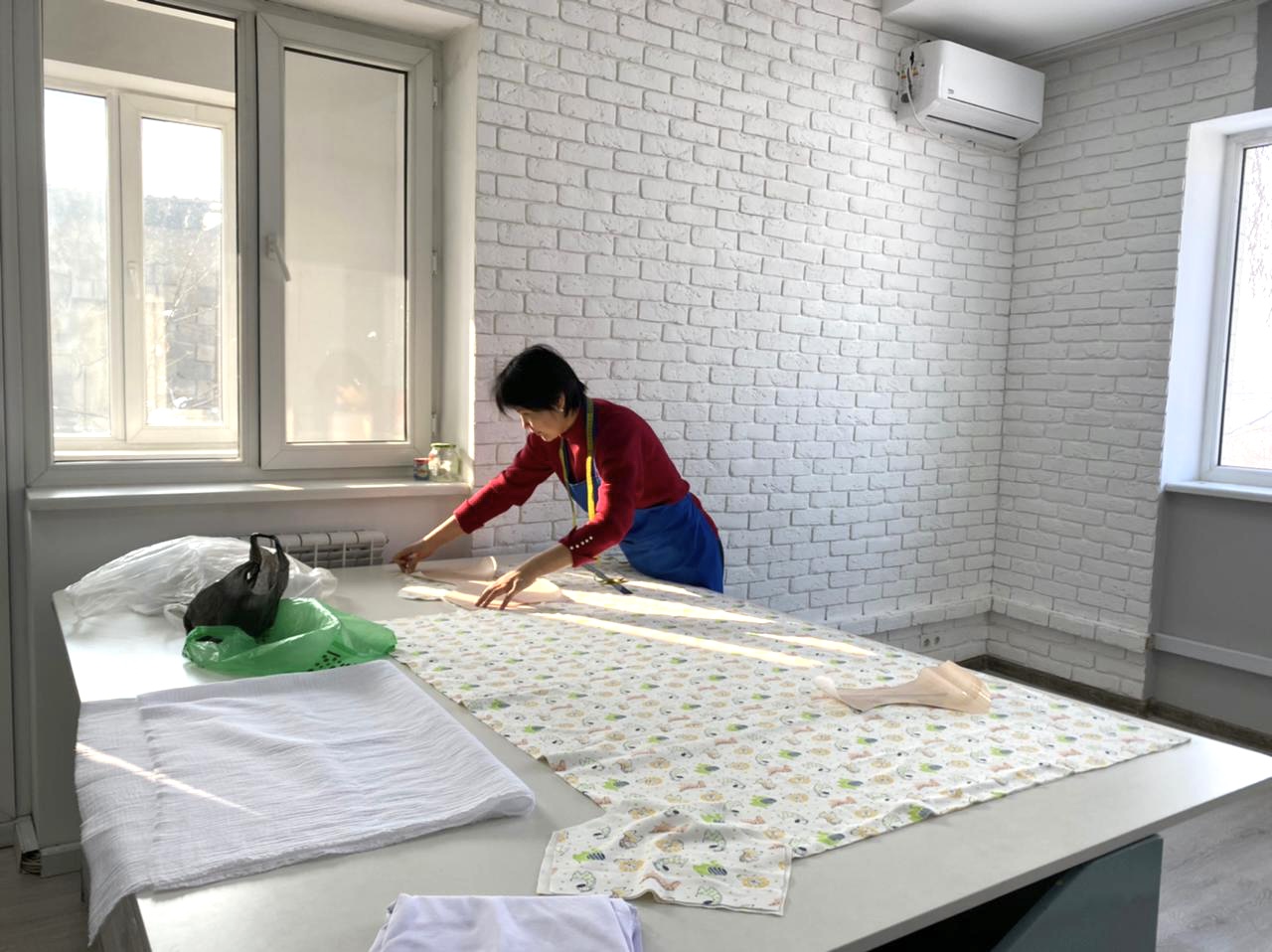
Arinova’s team comprises single mothers, mothers with many children, and women approaching retirement age.
“I would like to enter digital markets like Kaspi and Wildberries. However, I will need to commit certain resources, like money, time for documentation, and certification to provide products on the mass market,” she said.
Arinova’s company expanded rapidly in just one year thanks to Almaty’s thriving startup ecosystem. She has been a regular participant in various incubation and acceleration programs over the previous few years. She received a grant from the 3.2.1. Start program by the Coca-Cola company last year, which she used to purchase technical equipment for her workshop.
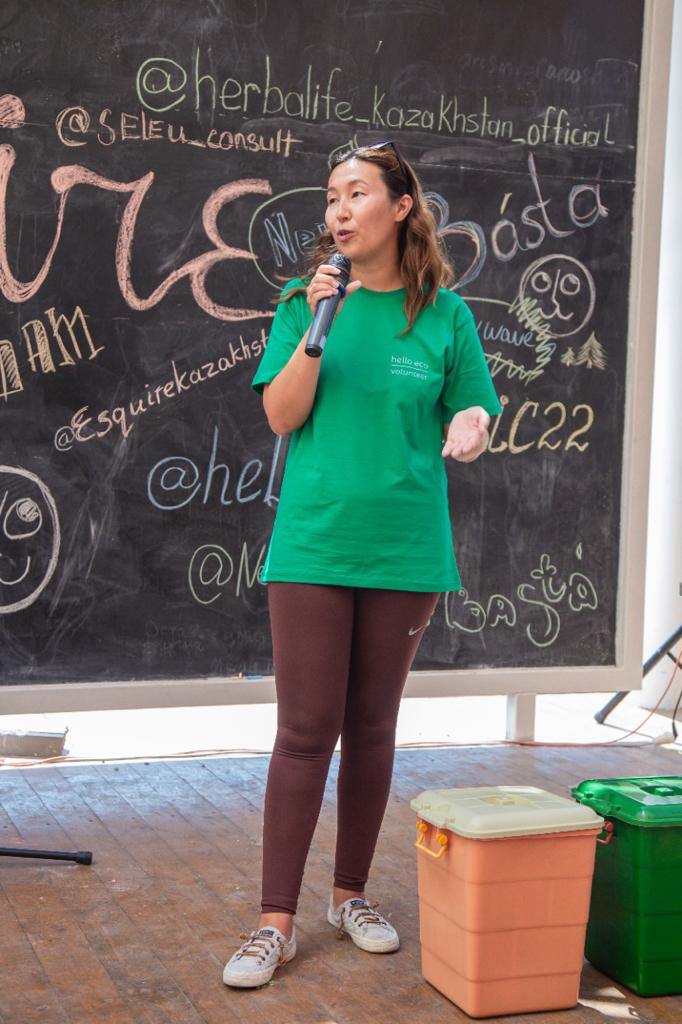
An eco-startuper you must always be proactive, look for opportunities, and network, says Arinova. Photo credit: Arinova’s personal archive.
“This grant was enough for me for technical equipment, the rest of the investments I made from my own funds. I did not have an investor, but I am always open to cooperation. I think that any start-up, in principle, would benefit from help. So after winning my first grant, I participated in many others,” she said.
According to Arinova, those programs provided her with educational and networking opportunities. One of them, Eco-Talk, organized by the Kazakh-German University in Almaty, allowed her to travel to Latvia, where she learned about the eco-startups in the EU.
“It was incredibly rewarding. There is a lot of informational support and interest in eco-projects right now, both from the EU and large corporations operating in Kazakhstan that wish to help the environment. They may pollute the environment through manufacturing, but they have programs to help eco-startups like us. Of course, it is not up to me to decide if this is an equivalent contribution, but it is still helpful,” she said.
Arinova shares that large businesses in Kazakhstan are motivating investors in green startups. Every incubator or accelerator has sponsors who set the criteria for the businesses in which they wish to invest, whether it is an eco-IT startup, an eco-startup, or an oil and gas firm. These companies are currently trying to figure out how to initiate this communication with startups, according to Arinova.
She stresses that while the government of Kazakhstan provides a scheme to support jobs and programs for obtaining low-interest loans, an entrepreneur first needs to be self-reliant.
“Of course, I cannot guarantee that someone starting out would receive instant support, but if you look for it, and if these are the industries in which the companies involved are interested, such as eco-startups and IT startups, then why not? I see this support, but to obtain it, you must always be proactive, look for opportunities, and network,” she added.
While comparing Kazakhstan’s support for environmentally friendly businesses, she said that the EU, in her experience, is more committed to the green agenda. Almost all of the businesses with an environmental component she visited as part of her educational trip, were partially funded by the EU bodies.
“Answering your question about whether or not eco-businessmen encounter challenges in Kazakhstan. It is hard to build a super factory and apply for governmental funding in Kazakhstan. In the EU, there is, of course, a separate budget for financing green innovations and green start-ups. They also provide grants for eco-startups,” Arinova said.
According to her, large-scale businesses, such as food waste processing plants, are especially in need of government support.
Arinova stated the dialogue between eco-activists and the state is still in its early stages. Yet, she emphasizes that, despite some difficulties, those passionate about environmental issues are highly motivated about what they do and cannot envision their lives any other way.
Arinova revealed her plans to manufacture children’s diapers as well as personal care items for women. She is positive there are many opportunities in Kazakhstan for startupers. All they need to do is to reach out for them and be highly motivated. She also said that she has no intention of limiting herself only to the borders of her home country.
“In the future, I would like to participate in international incubators. I am interested in this international experience because I have seen how it may look like in Europe. I also want to try to enter and test out the markets of neighboring countries,” she concluded.
